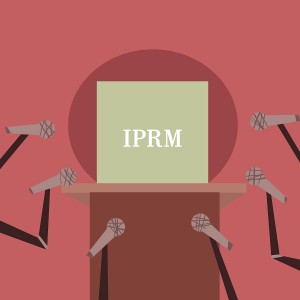IPRM report polarizes opinions

Opposition abounds after release of IPRM report

The Integrated Planning Resource Management process has become a major topic of contention in the university community. While there has been vocal opposition since the process began in 2013, the release of the planning task force report which outlines recommendations for how the university should be prioritizing both its academic and administrative programs, has sparked argument among faculty in particular.
Arguments arose at town halls held at both campuses as well as at the IPRM Senate meeting in December. In addition, a recent article published in The Waterloo Region Record featured faculty’s opposition to the process.
However, co-chair of IPRM’s planning task force, Kim Morouney, said she doesn’t believe it’s a majority of faculty that opposes IPRM. The faculty of arts took a vote to decide whether it would support or oppose the process — 44 out of 51 faculty members voted to oppose
IPRM. However, this was out of 221 faculty who were eligible to vote. 63 per cent of science faculty members voted and the majority of them were in support of the process.
“They’re doing a great job of making their voices heard in opposition to IPRM,” said Morouney. “That doesn’t mean that the majority of people are opposed.”
Associate professor of health studies James LeClair takes issue with the IPRM process and its recommendations. He believes the premise of the process — that a group of people could evaluate the entire university — is impossible.
An example of how the process was designed to fail is that they were unable to effectively evaluate the quality of academic programs, he said.
“Why anyone would presume that they possess the expertise to judge the quality of programs in someone else’s area of substantive expertise is puzzling to me,” LeClair continued.
He compared IPRM to the cyclical review of programs conducted by the province, in which experts conduct extensive evaluations of programs.
“So to suggest that using a template that really bores very little data for a fairly short time horizon, the notion that that can provide an assessment of quality of a program and the way it fits into the biggest picture — I just don’t buy it, it just doesn’t seem credible to me.”
LeClair was also dismayed by the conflict of interest policy used by the academic priorities team. The policy allowed all members of the committee to participate in votes and discussion. The policy reads that “members agreed that opinions on, interpretation of, insight into and analysis of information provided in the template was acceptable — but that advocacy of one’s own program was not.”
“I think a marginally competent high schooler would take a look at that and think there’s something wrong with this,” said LeClair. “That people were not prevented from speaking about their own programs.”
Jim Butler, vice-president of finance and administration, said he didn’t see any problems with the process.
“Whether one agrees or disagrees with the findings, the key is was it done fairly, was it arbitrary, was there any bias,” he said. “I didn’t see any of that in there — it was a very good process.”
Morouney also responded to the claim that the process was biased and the data is invalid.
“The fact is, 90 faculty, staff and students were nominated by their peers,” she said. “What are the odds that these people who were chosen by their peers to take part are all going to be opposed to liberal arts education, are slopping, didn’t look at the numbers, don’t care about the results. That doesn’t make any sense.”
She continued that the committee members have put a lot of work into the process.
“I’m sorry to say this, but from my perspective the people who are criticizing have not put in very much time.”
LeClair disagrees.
“Here’s the thing about a lot of work,” LeClair said. “You can spend a tremendous amount of time and work doing things poorly, and just because you put a lot of work into it doesn’t mean the end product is worthwhile.”
He also pointed out the redundancy of IPRM due to the strategic mandate agreement Laurier has with the province of Ontario. In this agreement, the university outlined its priorities which it would be targeting over the next few years. One of LeClair’s programs, health administration, received a recommendation from IPRM to phase out or minimize. But he says this contradicts with Laurier’s SMA, which highlights the program as an area for growth.
“Tell me, how can you take seriously a recommendation from the IPRM, an internal process, that is in direct contradiction to the strategic mandate agreement?” he said.
Morouney emphasized that the report contains recommendations which can be reviewed if a program’s situation has changed since the data was submitted to IPRM two years ago.
“I personally think a lot of the opposition is kind of theatrical, and I think it is more along the lines of a political statement of a distrust of any kind of evaluation of programs that’s done outside of the program,” she said.
Garry Potter, an associate professor of sociology, takes issue with the fact that IPRM is addressing a financial crisis that he says doesn’t exist and has turned this into an educational crisis.
He explained that the university is saying they are in financial trouble because they have more expenses than revenue. But, according to Potter, the university has more assets than liabilities, which means “they have more money now than [they] have ever had before.” And while enrolment is down, it does not mean the university is in a crisis, he said.
“I’m bothered mostly by the fact that — IPRM or no IPRM — the direction the administration wants to take us in is making more and more cuts to what the real business of the university is, which is research and teaching and learning. This is our central mission.”
Instead, the university is prioritizing real estate and senior administration — which Potter said has increased drastically over the past few years. This is where he would like to see cuts come from, not from academics.
The report will be discussed again at a Senate meeting on Jan. 12.
This issue was heavily commented on through social media over the holidays. Here are a selection of tweets.
Report on #Laurier program cuts not supported by most faculty. http://t.co/zSXtD4FXkE #WLU #Waterloo
— WR Record (@WR_Record) December 31, 2014
Report on #Laurier program cuts not supported by faculty http://t.co/f1iysiEDNk calls 4 minimizing or phasing out 19 programs #HigherEd
— William Whö ♿ (@gr8wheels) December 31, 2014
Faculty not on board with widespread cuts proposed by Wilfrid Laurier University, association says: http://t.co/GOqPxvYZYU
— Greg Mercer (@GregMercerGlobe) January 2, 2015
#laurier university program prioritization the responsible thing to do. http://t.co/xYOe2g1Yw4
— Kevin Crowley (@kevingcrowley) December 19, 2014
Sociologist questions WLU pres #MaxBlouw's integrated planning & resource mgmt strategy. #iprm @LaurierNews http://t.co/3wGNhLJci5 #highered
— Linda Quirke (@LindaQuirke) December 27, 2014
https://twitter.com/Herbert_Pimlott/status/549236240441020416
Good read about why enhancing student learning should be our priority at #Laurier: http://t.co/NMO40O7A9h #cdnpse #onpse
— Bruce Gillespie (@bgillesp) January 6, 2015
Happy to see this sentiment coming from past & present profs. Enhancing student learning should be priority #Laurier http://t.co/npwEfuSgJg
— Allison Leonard (@AllisonMLeonard) December 24, 2014
https://twitter.com/Herbert_Pimlott/status/547784827227750400


